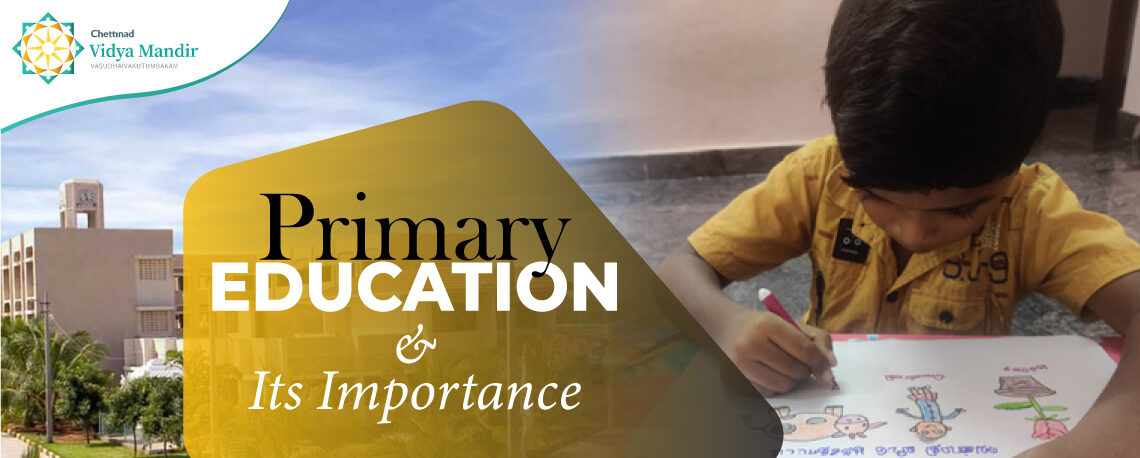Every child’s first and most fundamental right is to receive primary education. It is not just the government’s responsibility but also of parents to ensure that all children have access to the resources they need. The central goal of primary education is to raise awareness among children, create doors of opportunity for them to pursue their growth, and eliminate intergenerational poverty. Creating a welfare state and society is the first stage in this process. Primary education is an unavoidable prerequisite for lifelong learning and development.
Children are prepared for the beginning part of their life with strategies to succeed with the rest of the world. From the ages of four or five years, the kids have grown up in their own homes, where they learn about family life and how to connect with other children and adults. To ensure the growth of children, primary education serves this purpose. Essentially, this implies that all children have the opportunity to develop to the best of their abilities their social, cognitive, cultural, emotional, and physical capabilities. Children must attend an excellent pre-school and primary school to receive a quality primary education. Pre-school and primary school attendance have a more significant impact on children’s academic achievement than their family background or gender.
Primary education is designed to meet the needs of pupils throughout their first few years of formal education.
This program’s goal is to assure children’s growth – specifically, that they develop to the best of their potential in the areas of social, cognitive, cultural, emotional, and physical capabilities.
Primary education raises awareness among youngsters, opens doors to opportunities, and helps to prevent intergenerational poverty. Access to higher levels of education has a more significant impact on academic success than other criteria such as social/economic family background, gender, and other considerations.
Throughout this blog post, you will learn why primary education is vital.
What Exactly Is Principal Education?
Education in primary school, the first stage of compulsory schooling, often lasts for six or seven years of a student’s schooling career.
Parents can educate their children at home, even though primary education is required.
What Are The Goals Of Primary Education?
The primary goal is to teach children to think logically, achieve high living standards, deal with technological problems, and advance citizenship and fundamental values.
As a result, it allows pupils to make new acquaintances and improve their communication skills.
The elementary education of a child is critical to that child’s future. It can significantly impact your child’s self-confidence and provide them with the tools they need to be successful in their lives.
Children who do not acquire a fundamental education during their early years, including counting, the alphabet, colors, and shapes, will lag behind their peers who receive this foundational education.
Explaining The Benefits Of Private Secondary Education
It has several advantages for a child’s development, including the following:
- Boosts social and emotional development.
- It instills independence and self-assurance, and it helps you improve your reading and communication skills.
In What Ways Does Social And Emotional Development Get Support?
Collaborating and acquiring knowledge with other kids helps to develop a degree of appreciation for others, as well as to teach them the difference between good and evil, how to play cooperatively, the importance of sharing, how to resolve disputes, how to follow instructions, and how to express their opinions to others.
These are crucial life skills that youngsters will be able to use throughout their entire lives.
What methods does it use to instill independence and confidence?
Children who attend an early childhood education program that provides a positive and loving atmosphere are more stable than their peers who do not follow such a program.
Early education provides a safe, pleasant, and healthy environment where children can develop a sense of self and discover new things that help them learn more about themselves as they get older.
In what ways does it help students improve their reading and communication skills?
Communication and reading abilities are strongly connected with success in primary school.
An absence of education can result in illiteracy and various other harmful consequences that will hurt their development and potential in the long run. When given a fundamental education, children become more productive and skilled than when they do not receive such an educational foundation.

